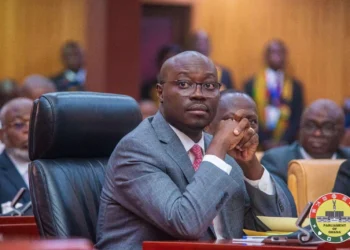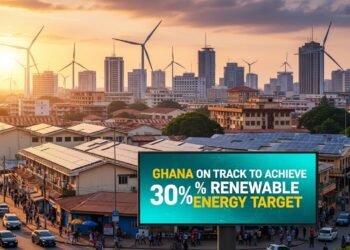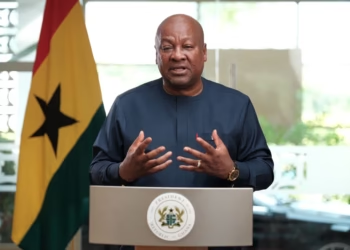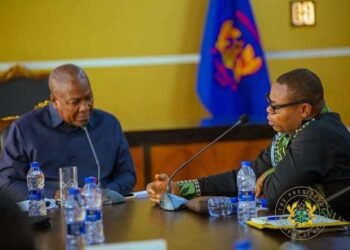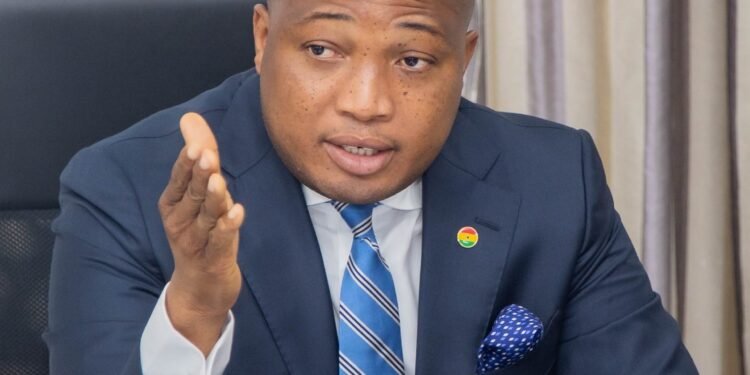The race to Ghana’s seat of government continues to get tougher and more competitive as the months get closer to the December 7, 2024, general election.
With less than six months to the December polls, each of the two main political parties in the country, NDC and NPP, has expressed confidence in their ability to win the presidential election and secure a majority in parliament.
Recent polls by Global InfoAnalytics and Kumasi Technical University offer a glimpse into the evolving voter preferences and the competitiveness of the race.
The latest polls by Global InfoAnalytics revealed that the 2024 presidential race is tightening amidst a nationwide tour by the Vice President, Dr. Mahamudu Bawumia.
The poll shows that the New Patriotic Party flagbearer, Dr. Mahamudu Bawumia has narrowed former President John Dramani Mahama’s lead in the poll by approximately 3% compared to the April 2024 poll.
According to the polling house, the NDC flagbearer now leads Dr. Bawumia at 51.1% to 38.2%, Alan Kwadwo Kyerematen at 5.3%, Nana Kwame Bediako at 4.6%, and others at 0.8%.
However, in another survey conducted in April 2024, by researchers at the Kumasi Technical University, Dr. Mahamudu Bawumia, the flagbearer of the New Patriotic Party (NPP), was the leading preferred presidential candidate for the 2024 general elections, garnering support from 38.9% of respondents as against former President John Dramani Mahama’s 36.1%.
Despite Dr. Bawumia’s lead as a preferred candidate, the survey indicated that the National Democratic Congress remains the preferred party for the majority of the voter population.
The report also indicated that 38.8% of Ghanaians are likely to support the NDC in the upcoming election, showcasing the party’s higher popularity compared to the NPP.
Interpreting Polls and Their Impact on Voter Behavior
Dr. Abdul Hakim Ahmed, a lecturer from the Department of Political Science at the University of Education, Winneba, has offered a critical perspective on the importance of polls and their impact on voter behavior.
In an interview with Vaultz News, Dr. Ahmed emphasized that while polls provide insights into voter preferences, they should not be overly relied upon for predicting election outcomes.
He highlighted the psychological effects of polls on voters, particularly the bandwagon effect, where voters may be swayed to support a candidate perceived as the likely winner.
This effect, he noted can manipulate public opinion and influence undecided voters to align with the perceived winning team, thereby skewing the actual election results.
Dr. Ahmed further indicated that political strategists often use polls as a propaganda tool to create this bandwagon effect, which can lead to varied and sometimes contradictory poll results.
“And more often than not, there has been, you know, research which suggests that when there is a popular option, you know, in an election or popular candidate which have been portrayed as the ones who are going to win elections. Once, you know, the voter begins to understand that this person in terms of, you know, popularity, he or she is the 1 who is going to win the election.
“There is a tendency that that candidate will become more popular or become more popular because more people want to join what is called the winning team. Okay. So from that perspective, you know, political parties and political strategists have used polls as a propaganda tool to get the bandwagon effect and get a lot of support for their preferred candidate”.
Dr Abdul Hakim Ahmed, Lecturer, Department of Political Science, University of Education, Winneba
Therefore, he advised that the real determinants of election outcomes are the votes cast and counted at polling stations, rather than poll predictions.
Campaign Strategies of NDC and NPP
In assessing the effectiveness of the campaign strategies of the NDC and NPP, Dr. Ahmed pointed out that one-on-one interactions with voters are more impactful than centralized campaigns.
These personalized engagements according to him, allow candidates to address voters’ concerns directly, clarify misconceptions, and build a stronger bond with the electorate.
Such, strategies, he stated may have contributed to the narrowing gap between former President John Dramani Mahama and Vice President Dr Mahamudu Bawumia in recent polls, following the latter’s recent nationwide tour.
Dr. Ahmed also touched on the NDC’s sustained popularity despite Dr. Mahamudu Bawumia’s rising personal preference.
He attributed this to the incumbency baggage faced by the NPP, which he noted includes issues like economic management, corruption, and environmental problems such as illegal mining.
These challenges, he mentioned often lead to public disaffection with the incumbent government, making it difficult for them to maintain support after two terms in office.
“Since the inception of the fourth republic, anytime there is a change of government, it is through the problems of the economy, the problems of corruption, and other minor issues. Unemployment and other things can all be contained in the issues of the economy. So that is why you are seeing what you are you are seeing.
“Especially after serving two terms in power or 8 years, people are not going to have a good perception of you because even if you have done well because of the nature or because of the structure of the economy, even if you are to do your best, because of the structure of the economy, and the way our practices, we do politics; because you have a situation where according to CDD-Ghana study, presidential candidates need not less than $100m to win an election, and parliamentary candidates need a little bit of $600, 000. Now where are the candidates going to get this money from? And it’s a debate that we are not prepared to do, but wherever they get the money would have an effect on the economy itself”.
Dr Abdul Hakim Ahmed, Lecturer, Department of Political Science, University of Education, Winneba
The Role of Smaller Parties and Swing Regions
Moreover, the renowned political scientist pointed out that the emergence of smaller parties and candidates, particularly from the Ashanti region, could impact the election dynamics.
Dr. Ahmed noted that the presence of Alan Kyerematen and Nana Kwame Bediako, both from the Ashanti region, could affect the NPP’s support base due to the tribal and regional nature of Ghanaian politics.
“Because elections in Ghana or the politics in Ghana is nothing but tribal. So, you know, people will say it’s regional; Fine. The region is still tribal. So because of the ethnic affiliation of these 2 candidates, the ruling party, NPP is going to be affected somewhat too.
“But as I have said, I have not done any personal research on that, and so I cannot give you the exact impact. But definitely, they are going to affect the NPP given the fact that the other 2 contenders outside these 2 major political parties are from the Ashanti region”.
Dr Abdul Hakim Ahmed, Lecturer, Department of Political Science, University of Education, Winneba
Regarding the potential for change in government, Dr. Ahmed highlighted the historical trend of incumbents losing elections after eight years in power.
He stressed the importance of the NDC effectively policing the results at polling stations to secure victory.
“The point that I’m saying is that the NPP themselves know that after 8 years, it is difficult to win an election in Ghana If you are the incumbent because, after 8 years, the pendulum swings, and the NPP knows that, and that is why even if you look at their campaign slogan, they say “it’s possible. That’s why they say it’s possible. Because they know that in 8 years, incumbents have always lost election”.
Dr Abdul Hakim Ahmed, Lecturer, Department of Political Science, University of Education, Winneba
He emphasized that undecided voters, particularly in swing regions like Greater Accra, Central, and Western, along with the middle class, will play a crucial role in determining the election outcome.
According to him, their decisions will likely be influenced by the candidates’ messages on key issues such as the economy, corruption, and illegal mining.
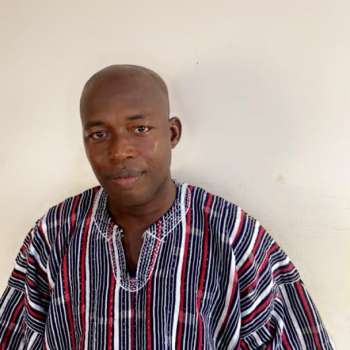
Topical Issues Influencing Voter Decisions
In addition, Dr Ahmed indicated that the primary issues likely to influence voter decisions in the December polls are the economy, corruption, and illegal mining, adding that voters will be looking for a candidate who can effectively manage the economy, address corruption, and tackle environmental degradation caused by illegal mining.
He mentioned that even though both the NDC and NPP are focusing their campaigns on these areas, the party that convinces voters of its ability to deliver on these promises will gain the upper hand in the upcoming elections.
As the election date approaches, the final outcome will depend on the parties’ ability to mobilize support, address voters’ concerns, and effectively manage their campaigns in the remaining months.
READ ALSO: Biden Reasserts Commitment To Running For Re-election






